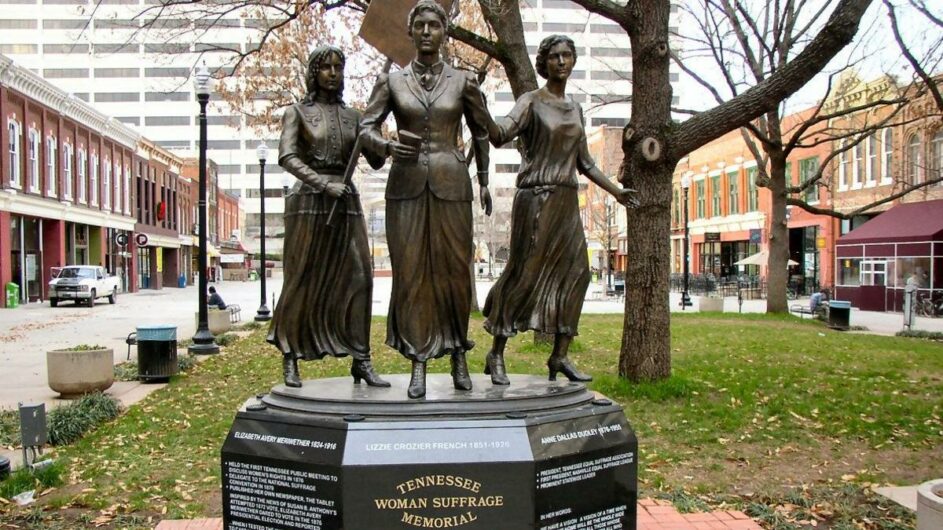As women’s rights increasingly come under attack throughout the United States, it’s important for East Tennessee women to remember that one of the most inspirational figures in the nation’s suffrage movement of the late 1800s and early 1900s was one of our own: Lizzie Crozier French.
It’s impossible to know what French, who died May 14, 1926, would have had to say about the efforts of states to roll back women’s rights in the wake of the leaked draft decision from the U.S. Supreme Court that would reverse Roe v. Wade. But considering her lifelong agenda of trying to improve economic, political and health conditions for women, it’s likely she would have been crusading to cement women’s reproductive rights as well.

Lizzie Crozier French
Margaret Elizabeth Crozier French was born May 7, 1851, in Knoxville. She was one of five daughters born to Mary Williams and John Hervey Crozier. Her father represented Knox County in the Tennessee House of Representatives 1837-39 and the 3rd Congressional District in the U.S. Congress 1845-49. Lizzie was educated at private schools in both Georgetown and Tennessee.
When she was 21, she married William Baxter French, and they had one son, William Williams French. Her husband died 18 months after their wedding, and she never married again.
French loved learning, and her first passion was education. In 1885, she and her sister Lucy reopened the East Tennessee Female Institute, originally the Knoxville Female Academy. The school was chartered in 1811 but didn’t have a permanent home until 1829, when a building was constructed on a lot bounded by present-day Henley Street, Main Street and Hill Avenue (the Croziers’ grandfather donated part of the land). The academy offered high school and college-level courses and was empowered to confer degrees in 1846.
The building was used by the Union Army as a hospital during the Civil War and returned to its original purpose afterward. But it was being used as a public school before the Crozier sisters took it over.
In 1885, French founded the Ossoli Circle, inspired by her visits to the Sorosis Club in New York, and named it after the late Margaret Fuller Ossoli, a transcendentalist and the first female American foreign correspondent. It was the first women’s club in Tennessee and the first in the South to join the General Federation of Women’s Clubs.
French was pivotal in pressuring the University of Tennessee to admit female students, which it did in 1892. She was a key player in the temperance movement, and she fought for women’s prison reform.
Her passion for elevating women came to a natural head with the women’s suffrage movement. She served as president of the Tennessee Suffrage Association and lobbied the Tennessee legislature to ratify the 19th Amendment. On Aug. 19, 1920, Tennessee became the 36th state to certify the amendment, giving women the right to vote.
French still has a physical presence in Knoxville. Her likeness and contributions are memorialized in the Tennessee Woman Suffrage Memorial downtown at Market Square, which was unveiled Aug. 26, 2006. Nashville sculptor Alan LeQuire’s three-figure grouping includes Elizabeth Avery Meriwether of Memphis, French of Knoxville and Anne Dallas Dudley of Nashville, representing the most notable suffrage leader from each Grand Division of the state.
French, who was buried with her husband, William Baxter French, in Old Gray Cemetery, was honored with an interpretive marker at the cemetery in August 2021.
Betsy Pickle is a freelance writer and editor who enjoys spotlighting Downtown Knoxville.

